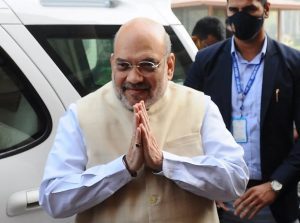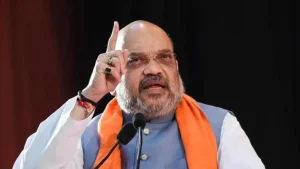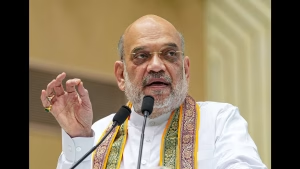A Century of Service: Amit Shah Says RSS Has Hoisted Flag of Devotion to the Sacred Land
When an organization completes 100 years, it is more than a milestone—it is a moment to look back at history, ideals and the spirit that has kept it alive. On the occasion of the centenary of the Rashtriya Swayamsevak Sangh (RSS), Union Home Minister Amit Shah paid tribute to what he described as a century of service and devotion to the nation.
A Century of Commitment
Speaking at the commemoration, Amit Shah called the Sangh a force that has “hoisted the flag of devotion and service” to the motherland. He emphasized that the RSS, since its founding in 1925, has consistently worked to unite society, instill discipline and uphold cultural identity. For him, the centenary was not simply a ritual but a reminder of how deeply the organization has shaped grassroots social and cultural movements in India.
Building Through Service
The RSS has often described its mission in terms of service to the nation rather than politics. Amit Shah highlighted this point, underlining that for the Sangh, “nation first” has never been a slogan but a lived reality. Volunteers have been visible in times of crisis—from natural calamities to relief efforts—and have also carried forward initiatives in education, rural development and health. The centenary, he said, is a time to recognize how countless swayamsevaks have dedicated their lives quietly and without expectation of recognition.

National Unity and Cultural Pride
Another theme in Shah’s address was the idea of unity. According to him, the RSS has worked to bridge divides by reminding people of their shared cultural roots. At a time when the country faced challenges of partition and identity, the Sangh reinforced the message of “one nation, one people, one culture.” He argued that it is this spirit of unity that has made the Sangh a stabilizing influence across generations.
Equally central was his praise for the organization’s emphasis on cultural pride. By keeping traditions alive, promoting the use of Indian languages and encouraging awareness of heritage, the Sangh has sought to ensure that younger generations grow up connected to their roots. Shah said that this pride is not exclusionary but is meant to instill confidence that India can draw strength from its past while shaping its future.
Discipline and Character Building
For decades, the RSS has held daily shakhas—gatherings where physical training, community activity and discussions take place. Amit Shah noted that these shakhas have been instrumental in shaping discipline, character and leadership qualities. In his words, the shakha is not just about exercise or drill but about learning to put society before self. Thousands who passed through these gatherings went on to serve the country in different capacities, carrying with them the values learned in early mornings on dusty fields.

Looking Ahead
While the centenary is a time to celebrate achievements, Shah also pointed to the responsibilities that lie ahead. He urged swayamsevaks to continue dedicating themselves to service and to respond to the challenges of the modern era—whether in technology, environment or social change—with the same spirit that has guided the Sangh for a century. The flag of devotion and service, he said, must fly higher in the next hundred years.
A Moment of Reflection
For many, the RSS is seen through different lenses—some view it as a cultural movement, others as a powerful influence on political life. But in Amit Shah’s words at the centenary event, the essence of the organization is service, unity and devotion to what he called the “great sacred land” of India.
As the celebrations unfolded, it became clear that the occasion was not just about looking back at history. It was about reaffirming a vision of selfless service and national pride that has carried the RSS through a century, and about renewing that vision for generations yet to come.
Also read: https://channel6network.com/durga-puja-2025-immersion-at-risk/

